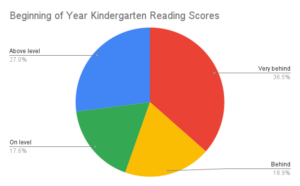At Monticello Academy Highbury in West Valley City, despite our great academic results, we don’t tell kids that they’re smart.
You might wonder, why not? Won’t that give them confidence?
Actually, it’s almost the opposite.
Stanford scholar Carol Dweck has studied how children’s beliefs about intelligence affect their behavior. Some children believe that we can grow our intelligence through hard work (which is true). This “growth mindset” results in resilience through failure and a willingness to work hard and grow. Other children (and many adults!) believe that their intelligence is fixed. This “fixed mindset” leads people to try to protect their perceived status by avoiding failure and challenges.
The Research
One of Dweck’s studies is summarized here (and here) by cognitive scientist Daniel Willingham:
“In one experiment, fifth-graders worked a set of 10 problems and all were told they had done well. In addition, some were praised for their intelligence (‘You must be smart at these problems’), whereas others were praised for their effort (‘You must have tried hard on these problems’). Yet others were given no further feedback. The children were then given the chance to select problems that were described as easy (and which they’d probably get right), or problems they’d learn a lot from (even if they would not ‘look so smart’).
“The results were striking: children praised for their intelligence chose easy problems—they wanted to succeed and worried about looking unintelligent. Children praised for their effort chose difficult tasks because they wanted to learn. And when given a choice between discovering how other children performed on the problems or learning new strategies for solving the problems, the children praised for their intelligence wanted to know how others performed. Children praised for effort, in contrast, wanted to learn new strategies.”
How We Build A Growth Mindset
As a school that tries to promote a growth mindset (in ourselves as well as our students), we…
- Teach students about growth mindset and brain plasticity. Students need to know the amazing and empowering fact that our brains and our intelligence can grow with effort!
- Avoid “fixed mindset” labels. If a student does well on something, we don’t tell them they’re “smart” (Natural conclusion: If I don’t do well on something, that must mean I’m not smart.)
- Praise effort! “Wow, you must have worked hard on that.” “I love how you took your time to think through that part of the problem.”
- Never try to sell something to students by telling them it’s easy. I once heard a teacher tell her students, “Don’t worry; this activity will be easy.” Wait, does that mean students should worry if something is hard? No! We should dig into hard things with enthusiasm, not worry! We don’t want easy. We want challenges! Besides, what if it’s actually not easy for a student? How will they feel then?
Conclusion
We are a school where we promote the joy of challenging ourselves and celebrate hard work. In our classrooms, then, instead of, “Wow! You got that right! You’re so smart!” we hear things like:
- “This assignment is a challenge! I think you’ll enjoy trying to figure it out.”
- “Look at these end-of-year results! I am so proud of your hard work.”
